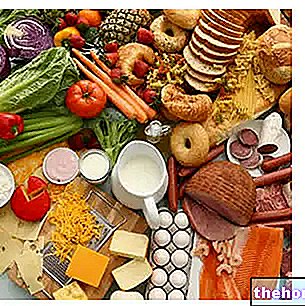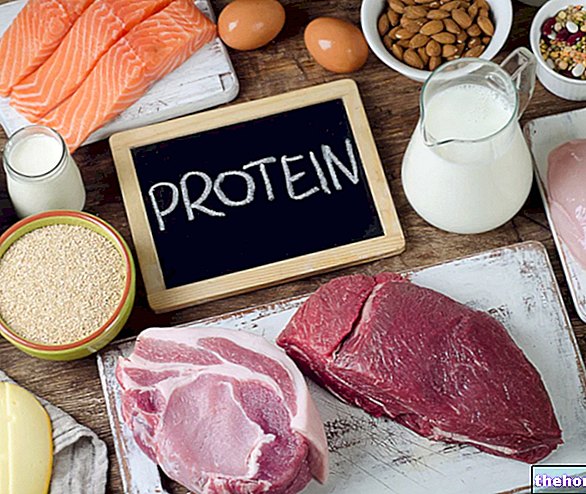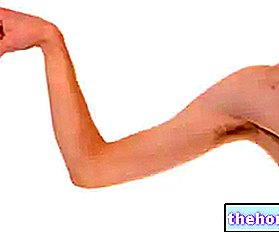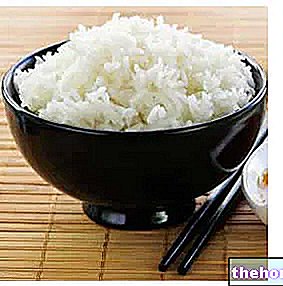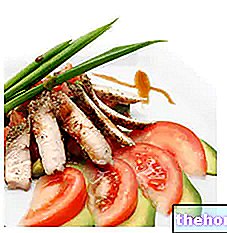But the problem is not only in calories, there are many other functions that fats can perform, depending on the different chemical structure:
- in the good (carriers of fat-soluble vitamins, constituents of cells and other important organic structures);
- in the bad (they favor the increase of body weight, but also the formation of atherosclerotic plaques in the arteries).
Therefore, although fats are also essential constituents of our diet, it is advisable not to eat too many, especially when it comes to fats of animal origin.
Before a workout or a competition it is good to avoid too fatty foods such as creamy cheeses, fried, desserts with cream and cream.
. About twenty different amino acids are known and, depending on the number and order in which they are arranged, there are different types of proteins. Of the twenty amino acids only eight are considered essential for our organism which can only obtain them from food, both of animal and vegetable origin.
Proteins are a valuable and irreplaceable material for the growth, maintenance and renewal of all the cells of the body. But when calories are scarce, for example in fasting, the body loses substances that it cannot build by itself and of which must supply itself from the outside with foods that contain all amino acids, which are the smallest elements from which proteins are formed.
The need for proteins is particularly high precisely in the period of development, especially in young people engaged in sports. Therefore the foods that supply valuable amino acids (milk and all its derivatives, meats, fish, eggs, legumes associated with cereals) must not be missing and cannot be replaced with impunity with others that do not contain all the necessary amino acids.
However, since proteins also contain nitrogen, one should not overdo the portions of meat, eggs and cheeses either because the excess of protein foods would not improve the strength of the muscles, but would force the kidneys to work overtime to remove toxic nitrogen residues.
This could occur not so much with normal nutrition but when bad counselors, including sometimes the family doctor or sports doctor, suggest unnecessary or dangerous additions of protein supplements, including branched chain amino acids.
Scholars agree that, for children who regularly practice a "sporting activity, the daily protein requirement should be about 1.2 - 1.5 grams of protein per kilo of weight, while for sedentary adults they are already sufficient 0.8 - 1 g / kg.
Therefore, when taking a supplement containing amino acids or proteins of any kind, one must be careful to reduce the intake of other high protein foods with food.
In the 14 main meals of a week, it is recommended to consume:
- meat: 3 - 5 times, alternating all kinds of meat, including bresaola and ham;
- fish: 2 - 3 times, preferably blue fish, or sliced fish, aquaculture or frozen fish, but also canned tuna;
- eggs: 2 times;
- cheeses: 2 - 3 times;
- legumes with cereals: 2 - 3 times: (soups of pasta and beans, rice and peas, etc.)
The proteins needed by a sedentary individual are approximately 0.8-0.9 g / kg / day.
In those who practice sports, this need increases:
- in certain phases of training there is an increase in muscle mass;
- protein is also consumed during training;
- with the same body weight, the turnover is greater because the protein mass is greater (it also increases from 14% to 21%);
- training in itself increases turnover.
The daily need for protein in the athlete can reach up to 2.5 g per kg / day. It is good, however, that the protein intake is distributed at various times of the day:
- in each meal no more than 30-35 g of proteins are absorbed
- if the protein supply is spread throughout the day, the effects of training are greater
Remember that:
- Muscle enlarges if individual fibers increase in volume (hypertrophy)
- "Hypertrophy occurs if c" is synthesis of new proteins
- Training (against resistance) constitutes the "training stimulus" for hypertrophy
- The synthesis of new proteins can only take place if the "raw material", the amino acids, is available
There are no consistent amino acid deposits in the body; if you take all the proteins in one meal, you may not have "raw material" (amino acids) when the body is in a position to synthesize new proteins. Muscle mass increases less than it could.
Other articles on "Nutrition and sport: fats and proteins"
- Nutrition and sport: energy integration
- Proper Nutrition of the Sportsman
- Nutrition and sport: branched chain amino acids, creatine and proteins
- Nutrition and sport: subdivision of meals and pre-race meal
- Nutrition and sport: what to eat during the race

